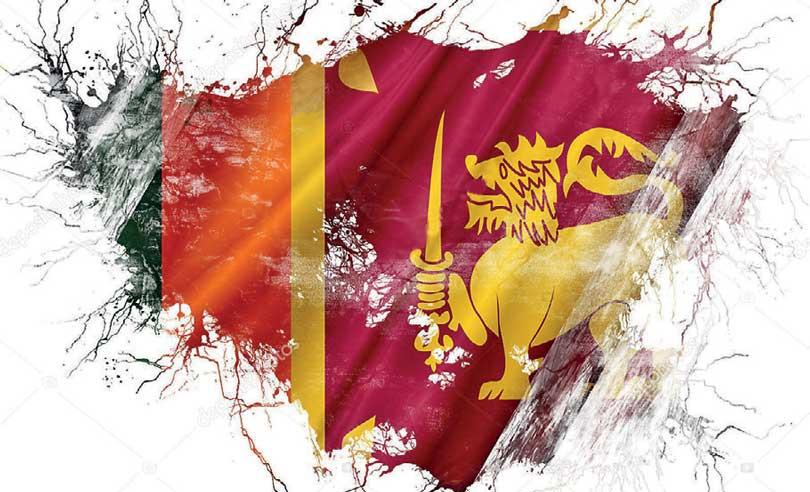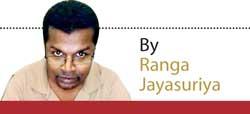Reply To:
Name - Reply Comment

 On this day of the seventy-second anniversary of independence, Sri Lanka is yet again at the crossroads. I do not mean that with an aura of doom and gloom as some international pundits have already indulged. But, surely the country and its political, cultural and economic institutions are in a state of transition, and they could take a turn for better or for worse.
On this day of the seventy-second anniversary of independence, Sri Lanka is yet again at the crossroads. I do not mean that with an aura of doom and gloom as some international pundits have already indulged. But, surely the country and its political, cultural and economic institutions are in a state of transition, and they could take a turn for better or for worse.
The critics of the government base their criticism primarily on symbolism and prejudice. That is the wrong choice for analysis. The shattered hopes of a half a decade of Yahapalayana, heralded as a sea change, is proof.
Five years ago, by electing the Yahapalanaya, Sri Lanka surely halted a dangerous slide into authoritarianism. But, the political leadership failed the economy and national security with devastating consequences. That colossal failure led to the election of President Gotabaya Rajapaksa. The critics of Mr Mahinda Rajapaksa now fear that the authoritarian project that was stopped mid-way in 2015 would be resumed under the Presidency of younger Rajapaksa.
Mr Rajapaksa so far disappointed his critics and dumfounded cynics. Unlike his populist elder brother Mahinda, who named every other high profile construction in the country after his name, Gotabaya has eschewed ego pumping.
However, things can be trickier than they appear. The catalyst of the change that Sri Lanka would undergo in the coming years might not be President Rajapaksa.
His election ushered a wave of ethnonationalism which was exclusively Sinhalese-Buddhist and dismissive of the ethnic minorities. It is also retrograde and could easily degenerate into the ugliest of human impulses.
History of international politics is rife with endless analogies of autocratic regimes in Asia, Africa and Latin America relying on ethnonationalism to legitimise a regime and to restructure the State in the likening of the authoritarian elites.
This wave of dangerously toxic ethnonationalism would be the catalyst of Sri Lanka’s political transformation in the coming years.
It can easily be manipulated by the shrewd political leaders, and would, therefore, be co-opted in the process to restructure the state and remake the constitution.
While I am not a pessimist, I do not think Sri Lanka had reached the level of political and institutional empowerment that could withstand a skewed grassroots mobilisation and opportunistic elites who manipulate these forces to advance their personal interest.
If the Pohottuwa manages to obtain a two-third of Parliament seats, or any number closer to it - with the remainder to be bought over from the Opposition as it was when passing the 18th Amendment- the Rajapaksas would have a go at the Constitution.
This wave of dangerously toxic ethnonationalism would be the catalyst of Sri Lanka’s political transformation in the coming years.
Though personal considerations, much less democratic niceties might prevent Prime Minister Rajapaksa from handing reins to his brother.
If the new President is incisive enough, he could see the correlation between gradual international isolation during the second term of the Presidency of Rajapaksa senior and the constitutional tinkering and intimidation of the courts and dissent at home.
Most Third World leaders become demigods at home while receding to the level of Pariahs in the eyes of the civilized world.
Sri Lanka stands at the crossroads of democratisation and the strongman rule. I am not saying President Rajapaksa would plunge headlong to make himself an absolute President. However, his primal instincts would kick into action if a servile populist wave and rent-seeking electronic media create the permissive conditions.
The second element of the transition is the economy. Sri Lankan economy had been at the crossroads since the 1950s, but it could never achieve the desired economic modernisation. At its 72nd Anniversary of the Independence, President Rajapaksa is overseeing an economy that is under tremendous stress.
Though the economy had historically failed to maintain a consistent growth-to give the devil its due, the two-term Presidency of senior Rajapaksa is the only exception- Mr Rajapaksa’s immediate predecessors are at fault for creating this right royal mess.
Unlike the UNP leadership, whose ineptitude at economic management is criminal, the President has taken a genuine and proactive interest in fixing the economy. His economic policies are forward-looking and ambitious, like any other country that has a lot of catching up to do. If he is given a chance, he might make a difference.
However, the world economy is heading into turbulent times. Though it is still premature, all signs are that the economic impact of Coronavirus would be significant. The world’s second-largest economy and Sri Lanka’s main development partner, China is in virtual shut down. A slow down and a probable recession of the Chinese economy would have a heavy toll on Chinese investment and tourist arrival.
Projects such as Hambantota Export Processing Zone, which should have launched long ago would see further delays. A decline in Chinese consumption would eat into profit of global firms and see a decline in FDI by other countries.
This is while the hefty tax reductions announced by the government is expected to reduce tax revenue by 1 to 1.5 per cent of the GDP. Pressure on the foreign reserves would be palpable. Sri Lanka’s growth target for this year is a modest 4 per cent, which is still achievable. However, reforms for long term sustained growth would have a hard time to achieve the expected outcome.
The third area of transition is the Tamil national question and other assorted Human Rights concerns.
This is a highly contentious territory where even the most politically committed found it difficult to please all the stakeholders.
Make matters worse, the Tamil political project had failed to win the trust of majority Sinhalese. Perhaps, the maximum devolution would only fuel separatism, whereas the Tamil grievances can be managed with a mixture of means without leading to an escalation.
However, throwing the baby with the bathwater and make an ass of itself before the international community is not the desirable solution. New President Rajapaksa seems to be a lot more measured than expected in addressing global concerns. That is commendable.
If he sticks to his good senses, eschews political aggrandisement and diverts his energy to modernise the economy, a few years from now, many folks would be writing peans to him. However, Sri Lanka’s transition has just started. He has to guide it to the right trajectory.
Follow @RangaJayasuriya on Twitter